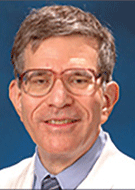Groundbreaking Radiology Research Shows Consecutive Mammography Screening Reduces Breast Cancer Mortality
Multinational study analyzes screening data from more than 550,000 patients



Led by researchers who published seminal breast cancer research in 2011, a new Radiology study of more than half a million women over a 24-year period demonstrates that participating in consecutive mammography screening significantly reduces breast cancer mortality when compared to patients who missed screening appointments.
The March 2021 Radiology study was led by László Tabár, MD, professor emeritus of radiology at Uppsala University, Sweden, and Stephen W. Duffy, MSc, professor of cancer screening at Queen Mary University of London, who also co-authored the Swedish Two-County Randomized Clinical Trial of mammography screening published in Radiology in 2011, that reported results of a 29-year follow-up of the trial. The first publication of the trial in 1985 showed a significant reduction in breast cancer mortality from mammography screening participation and became the foundation of population-based mammography screening worldwide.
“Randomized clinical trials of mammography such as the Two-County Trial had to be performed first to provide proof that screening can reduce breast cancer mortality,” said Stephen A. Feig, MD, professor and division chief of breast imaging at University of California Irvine, in the accompanying editorial.
In their research focusing on the impact of participating on consecutive mammography screening on breast cancer mortality, Drs. Tabár, Duffy and colleagues analyzed data from almost 550,000 patients eligible for mammography screening. Researchers determined that the incidence of breast cancer proving fatal within 10 years of diagnosis was 50% lower for serial participants than for serial nonparticipants. Patients who attended two of the previous mammography screenings had a 29% reduction in breast cancer mortality compared to patients who attended just one screening.
“We have a single arch enemy: advanced breast cancer,” Dr. Tabár said. “This study shows that women should not hop on and off the breast cancer screening bus. They are strongly advised to participate regularly. The protection that screening mammography offers doesn’t last long. Missing even one screening exam confers a significant increase in risk.”
Watch Dr. Tabár explain the Radiology research:
In this prospective analysis, a multinational team of researchers analyzed the effect of screening attendance patterns on mortality from breast cancer and on incidence of breast cancers proving fatal within 10 years after diagnosis. The study population included the data of 549,091 patients (average age 59) eligible for screening mammography in nine Swedish counties from 1992 to 2016, covering about 40% of the entire country.
According to national recommendations, women had been invited to breast cancer screening with mammography with a pre-booked appointment every 12–18 months for patients aged 40–54 and every 18–24 months for women aged 55–69.
Patients were divided into four groups based on their participation in the two most recent scheduled screening exams prior to breast cancer diagnosis and whether they had participated in:
• Only the most recent screening examination prior to a breast cancer diagnosis (intermittent participants, 41,746 patients)
• The penultimate screening examination only (lapsed participants, 30,945)
• Both the previous two screening examinations (serial participants, 392,135)
• Neither examination (serial non-participants, 84,265)
Using data from public registries, regional cancer centers and from the National Death Registry, the researchers identified 37,078 breast cancer cases, including 3,995 breast cancer deaths in the nine counites during the study period.
A total of 2,589 cancers proved fatal within 10 years. Cancer incidence was calculated up to two years after the last scheduling screening exam.
The analysis showed that participation in the two most recent mammography screening exams before a breast cancer diagnosis provided higher protection against breast cancer death than participating in neither or just one exam. The differences were largely due to finding cancers earlier, researchers said.
“Results from these many service screening studies indicate that when women fully participate, non-research organized service screening studies can obtain and exceed the reductions in breast cancer mortality found in randomized trials,” Dr. Feig added.
For More Information
Access the Radiology study, “Beneficial Effect of Consecutive Screening Mammography Examinations on Mortality from Breast Cancer: A Prospective Study.”
Access the Radiology editorial, “Influence of Patient Participation on Decreased Mortality from Screening Mammography.”
Read previous RSNA News articles on mammography:
- Digital Breast Tomosynthesis (DBT) Reduces Rate of Interval Cancers
- Tomosynthesis Outperforms Digital Mammography in Five-Year Study
- Older Women Benefit Significantly When Screened with 3D Mammography
Find Dr. Tabár on Twitter at @Laszlo_Tabar